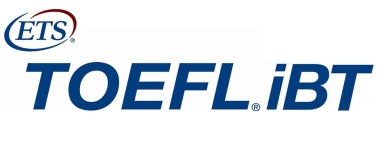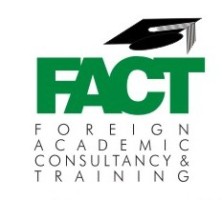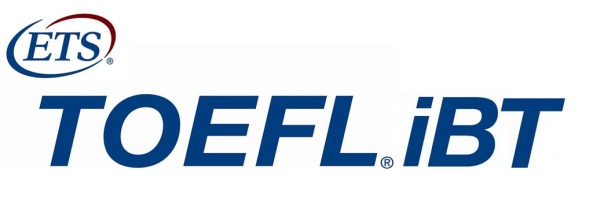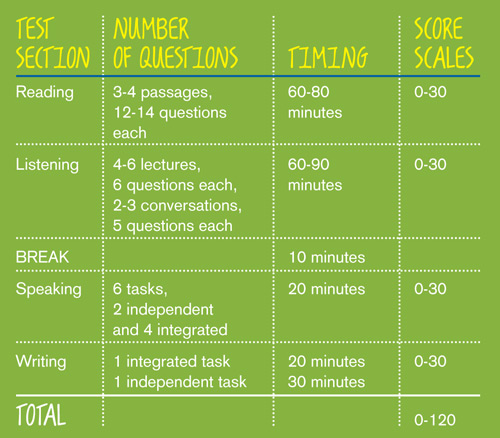 TOEFL – READING COMPREHENSION TIPS!
TOEFL – READING COMPREHENSION TIPS!
The first Section that you will have in TOEFL iBT exam is the Reading Section. The Reading Section of TOEL iBT measures your ability to read and apprehend academic based passages in English. You have to have a strong and effective Reading Skills that will help you achieve high Score in the Reading Sectopn. As we discussed in our previous TOEFL iBT Format Blog; with its 4 Sectional division of Reading, Listening, Speaking & Writing, in my TODAYS BLOG, we will be learning about the 1st Section of READING SKILLS & its STRATEGIES.
There are 3 main purposes for Academic Reading in TOEFL iBT:
1. Reading to find related information
2.Understanding the Basic comprehension
3. Reading to learn
The Reading Section in TOEFL iBT consists of 3-5 Passages; each Passage is about 500-700 words long. Each Reading passage is followed by 12 – 14 questions related to the passage. The complete time frame for the reading Section is 60 – 80 Minutes, depending on the number of passages appear.
The total time dedicated to all the passage is for 60 -80 minutes for reading and answering the questions, this time as mention varies depending on the number of Passages that appear going up to maximum of 80 Minutes. The system will automatically stop you after the time ends, so you must be very attentive on the time. Thus, you must be not only good at reading and grasping the details of the passage but also pretty quickly in it.
 10 Strategies for Reading Comprehension:
10 Strategies for Reading Comprehension:
1) When you have at least 3 month in hand: I suggest you Read, Read & Read a lot. Keep a regular habit of reading English Newspaper that will particularly enhance your reading skills. Emphasis on academic based reading particularly, from university textbooks or other materials. Don’t just read on topics that interest you. Your Reading Comprehension passage comes from wide range of Topics, Therefore, expand your reading topics, whether is suits your interests of NOT, whether its boring or interesting, make it a point that you read from different subjects & topics like History, Arts, Sociology, science, Finance, Social science, Business journals, Archeology, Geography, Economics, and any others. Academic texts, apart from textbooks, these could be found in variety of articles in various Publications like Nat Geo Magazines etc. and academic publications Or on the Internet or your university libraries.
2) Strengthen your vocabulary: When reading any topic on different subjects you should make your own set of vocabulary. Improve your vocabulary by starting with Root Prefixes & Suffixes first, have a grip over your Root Words, the origin of these words, this you will find in my previous Blog on VOCABULARY. Then make separate list, organize your list in topics for better results may be alphabetically. Study through Flash cards, there are lots of flashcards available by various publications like Barron’s, Kaplan & Princton, study them when you are travelling in Train, Bus, Or Car make best use of your travel time. Or you can make your own flashcards to help you learn those set of Vocabulary. Use the words learned in your writings and speaking section of your TOEFL / SAT / GRE OR GMAT.
3) Take rough notes: You are provided with a rough sheet to take notes on them, make full use of it – take notes on that paper. It is an absolute essential element, as it’s difficult to remember all facts and details from a reading text in order to answer the questions. You don’t want to waste your time in searching details over & over again in the passage. So, the best thing to do is to keep taking note with line numbers for reference. While skimming and reading the texts you should jot down all key facts and details so find them when, you need them.
4) Skim the Passage: Skimming is reading the passage in about 30 seconds, just an over all look on the passage. Skimming means having a quickly glance of the Passage to obtain very first idea / imprint on what the passage is about, or get a rough idea of what is its main idea of it. Train yourself to skim quickly through the passage, without wasting much of your time and by identifying the main point & key words in the passage. Taking notes will help you sail through this.
5) Read Passage after skimming : Once your skimming is done, read the Passage carefully looking for details & facts. Look for key words & Phrases mentioned in the passage. Particularly the 3 Major types of transition Words: Connection, Progression & Contradiction, along with them look for Phrases, idioms and Adjective words. It will enlighten you with author’s opinion and point of view. As only skimming is not enough. Reading it more carefully, but don’t forget you do not have much time. Keep taking notes; make it a habit whenever you solve any practice test. You need to understand the ClassificationOR Types of Passages like – classification, Rhetorical Type, Cause & effect, Persuasive, Factual Type, Detailed type, compare or contrast, Narrative, Problem OR solution, Sarcastic Type, etc.
6) Make an intelligent guess the word meaning: Use your knowledge of Prefixes, Root & Suffixes in order to identify the meaning of the word from the passages; refer to its context to get the over all meaning of it. Guessing the words from the context is very easy, as it must not be a dictionary meaning. You save on time and it its very quick.
7) Practice, Practice & Practice a lot: Practicing in a proper exam environment will help you deal with exam pressure better. Try to take a minimum of 5 Full-length Test before your main TOEFL Exam. You need to always remember that TOEFL is a standardized test. This means it always follows the same format. Keep practicing tests to familiarize yourself with the format and testing conditions and keeping track of your time.
There are lots of Free Online Testing site to help you attain good score in respective sections like:
1) http://www.testden.com/challenge/free-toefl.asp
2) http://www.4tests.com/toefl
8) Remember: That all the answer are present in the Passage, you are not expected to answer from your opinion. Through the Reading Comprehension it tests your ability to understand and comprehend ideas related to the passage. Hence focus on reading & cognizing the over all idea of the passage.
9) As discussed earlier understand and keep taking note with line numbers so you can quickly reach that part, Note down the Main Topic or its Main idea and the Key words / points or Phrases when reading the passages, and use your notes for answering the questions.
10) Read the questions careful, remember if you interpret the meaning of the question wrong, you will choose a wrong answer, so be careful! However, remember that the answer to all the questions are in the information provided in the passages itself. Try to answer these questions using what you have understood from the read passages.
If you want to get a superb score in the TOEFL Reading Section my advice – Keep Practicing!
 ALL THE BEST for your TOEFL EXAM !!
ALL THE BEST for your TOEFL EXAM !!
See you in my next Blog on the Different TYPES of QUESTION & and its approach, under the TOEFL READING SECTION, which will help you score high in READING PASSAGES.
Till then Adios mi amigos !! 😀
Shraddha




